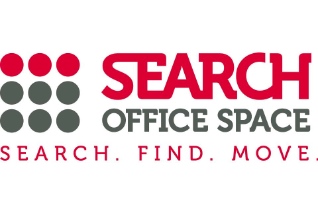With its 20-year anniversary approaching, new branding and plans for global expansion, UK-based brokerage firm Search Office Space has plenty to celebrate.
Search Office Space (SOS) is a familiar name in the flexible workspace industry. It should be – founder Richard Smith created the office brokerage firm back in November 1993 as a way of introducing small and medium sized businesses to a more flexible way of officing.
“Back then it was just Richard and a handful of workspace operators,” says Jon Posener, Chief Operating Officer at SOS. “Now we’re preparing for our 20th anniversary in 2013. The industry has changed a lot since then.”
During that time the flexible workspace industry – and SOS – has experienced explosive growth. SOS alone works with over 8,000 serviced and managed office properties across the world, and there is a steady stream of new business centres arriving in both established and emerging markets on an almost weekly basis.
So what’s new for the UK’s first serviced office broker?
A new website for one, and a new logo. This refresh is part of a wider rebrand as well as a revamp for a website that was over ten years old. As part of the work, SOS are combining their website overhaul with a greater focus on their global spread.
“We’re pushing the Asia Pacific and European side of the business as part of our global growth agenda,” says Jon. “We’ve just launched an office in Hong Kong, and we’re recruiting staff with second languages to work more efficiently with our clients and workspace operators around the world.”
Among the key emerging markets, Jon counts Asia as an exciting location, specifically India, and also Brazil and Mexico.
“Our focus is on developing a solid presence in these emerging markets as well as other more established locations,” says Jon. “There is huge potential there, and as part of our global expansion strategy we want to be part of that.”
Closer to home, Jon says that Central London continues to go from strength to strength and describes Mayfair as its own world – referring to its high density of serviced office space and enormous demand, not to mention the eye-watering cost of prime serviced space. “I’ve seen workstations go for £1,500 and even £2,000,” he says. “It’s like its own economy!”
Elsewhere in London, the West End and the City continue to operate as strong markets. And while some parts of the UK continues to experience below-average rental values in the aftermath of the recession, Jon says that major UK cities like Manchester and Birmingham are “holding their own”.
Over the past twenty years, SOS has seen enormous change in the flexible office industry. Currently, the company is noticing a growth in corporate clients seeking serviced office space. Jon explains that corporate firms now recognise serviced and managed office space not just as a flexible alternative to conventional space, but also as a cost-saving one.
“Research has proven that larger firms can save up to 50% by opting for serviced space, so we’re finding more requirements from large corporates looking for project space, and companies setting up for longer periods – typically two or three years,” he says.
One of the prevalent trends among workspace operators is diversity. “It’s apparent that coworking and touchdown space is growing in popularity, and many operators are introducing a more diverse range of space into their centres,” he says, “but it’s clear that serviced space is still the core requirement and we are continuing to see growth in demand as well as supply in the UK and globally.”
With a new online presence and a global growth strategy that will see SOS launching new offices abroad, 2013 is an exciting year for a company that is preparing to celebrate two decades in the flexible workspace business. It’s also representative of the level of demand and growth within the global workspace market, and at Alliance we hope to see the growth shown by SOS leading to further prosperity for independent business centres and the industry as a whole.



 Dr. Gleb Tsipursky – The Office Whisperer
Dr. Gleb Tsipursky – The Office Whisperer Nirit Cohen – WorkFutures
Nirit Cohen – WorkFutures Angela Howard – Culture Expert
Angela Howard – Culture Expert Drew Jones – Design & Innovation
Drew Jones – Design & Innovation Jonathan Price – CRE & Flex Expert
Jonathan Price – CRE & Flex Expert











